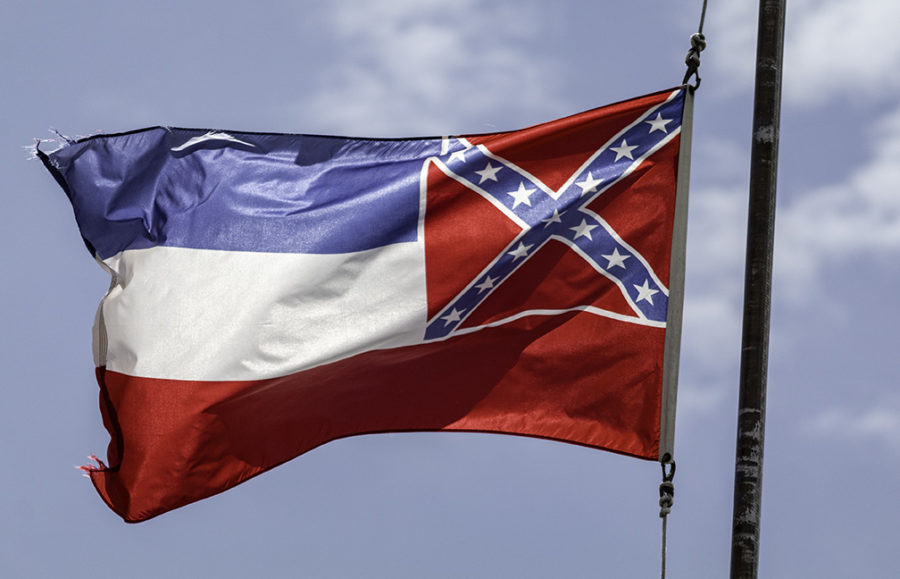On June 19, the NCAA Board of Governors announced a ban on any championship events from being held in Mississippi until the Confederate symbol is removed from the state flag.
The NCAA’s decision came a day after Southeastern Conference (SEC) Commissioner Greg Sankey warned that, if the flag is not changed, the conference would consider preventing championship play in the state.
“It is past time for change to be made to the flag of the State of Mississippi,” Sankey said. “Our students deserve an opportunity to learn and compete in environments that are inclusive and welcoming to all.”
Shortly after, Conference USA also announced they are banning all championship events in Mississippi until the flag is changed.
If the flag is unchanged by the time collegiate sports begin postseason play, Southern Miss teams could be affected by the new policies. While a previous policy prevented teams in states that flew the Confederate flag from hosting predetermined events, the new policy says that no championship events, including non-determined ones, will be allowed in Mississippi.
Had this happened in 2017, when Southern Miss earned the right to host baseball Regionals in Hattiesburg, said event would no longer be allowed. This is important to note for baseball especially, as the 2022 Conference USA baseball tournament was planned to be played in Hattiesburg.
The presidents of Mississippi’s eight public universities, including Southern Miss President Rodney Bennett, issued a joint statement in which they supported the NCAA’s decision.
“Several years ago, our universities recognized that the Mississippi state flag in its current form is divisive and chose to lower the flag on our campuses,” they said. “Today, we are committed to continuing to do our part to ensure Mississippi is united in its pursuit of a future that is free of racism and discrimination. Such a future must include a new state flag.”
The presidents acknowledged that the new policies could result in significant financial losses, but stand by their priority of changing the flag. “We look forward to a time when Mississippi’s state flag unites Mississippians, rather than divides us,” they said.
Southern Miss Director of Athletics Jerry McClain backed the joint statement on his Twitter. “I fully support this statement from our higher education leaders throughout the state of Mississippi,” McClain said. “It is time to make this long overdue change and allow us as Mississippians to pursue a brighter future TOGETHER!”
While the state flag has been a topic of debate for decades, weeks of national protests against police brutality and systemic racism have refocused attention on Mississippi’s use of Confederate symbolism.
In the past month, state legislators have proposed initiatives to change the flag, but there is a debate on whether legislators or state citizens should decide the issue. Gov. Tate Reeves is among those who believe that the issue should be given to state citizens to vote on.
In 2001, citizens voted on a similar issue during the Mississippi Flag Referendum. 64% of voters decided to keep the state flag with the Confederate emblem. In a more recent poll, however, voter support dropped to 46%, with only 9% undecided on the issue.


























